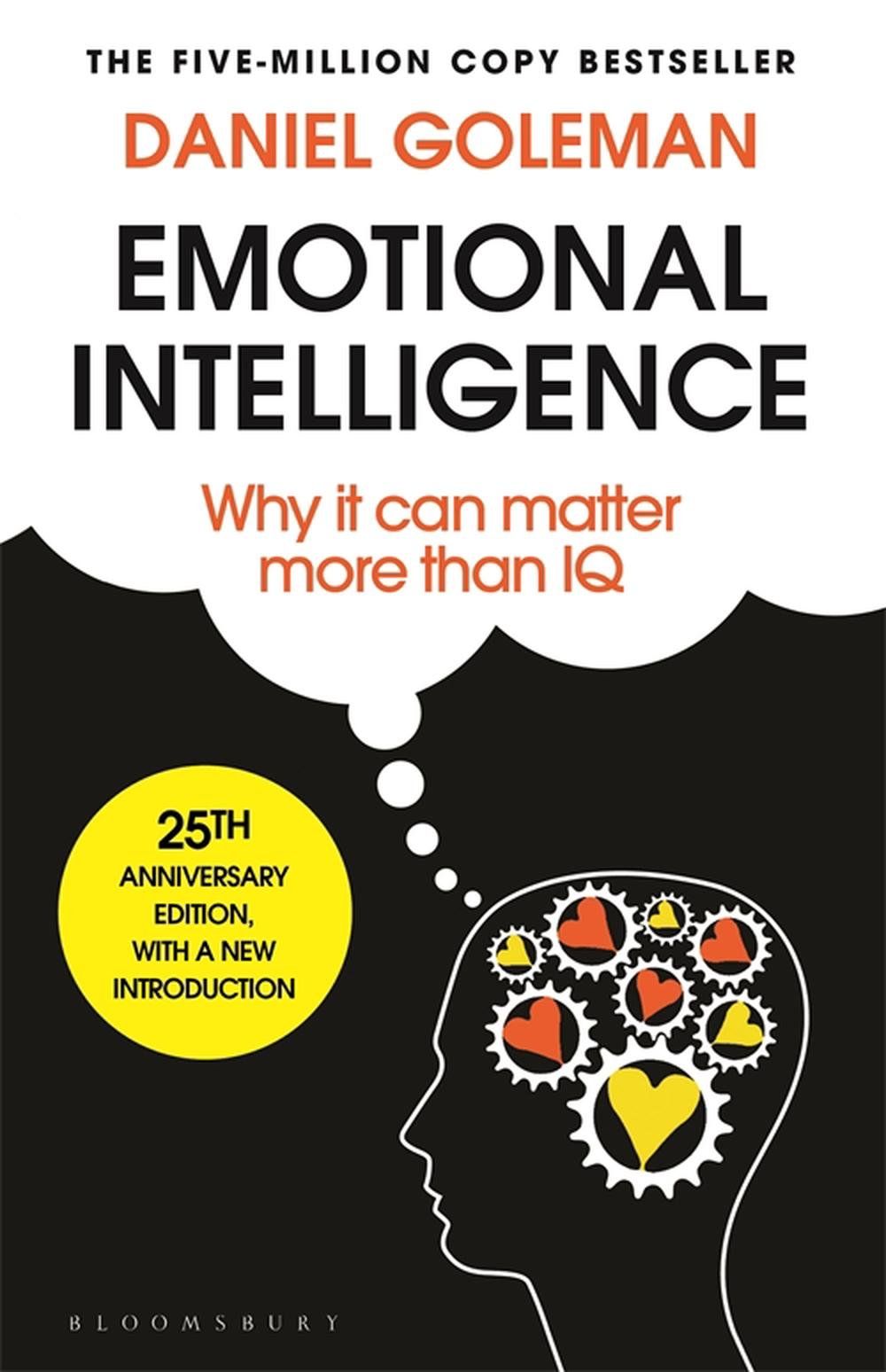Since the easing of lockdowns here in Australia, I've revisited an old past-time of mine which is browsing the nearby bookstore. I'm not all too picky on the catalogue as some would assume, and despite the eye-catching "self-improvement" titles still somewhat stirring a reflexive sigh of annoyance in me, I can't deny that some book covers from the genre do pique my interest.

Emotional Intelligence: "How it can matter more than IQ". Of course with a sub-title like that, you could pick at the brain of a reader that is well aware of their intellectual deficiencies... Let me just start right off the bat: this book is for the person trying to gain an edge, or at least become aware, of the hidden advantage within everyone that heavily influences the trajectory of their own success across various aspects of life.
David Goleman writes an insightful and informative book that summarises the benefits of implementing emotional intelligence and offers a warning through numerous case studies, about the pitfalls of failing to develop the skill of understanding and evoking emotion. The author does so by expressing the main concepts of what comprises the skillset of "emotional intelligence" through a steady foundation of theory explaining the brain's physiological response to the external world. Unfortunately, the average reader who isn't familiar with these biological terms would probably describe the book as tending to get too stuck on the details of neurotransmitters, hormones and the like. The text isn't heavy per se, but to someone familiar with these concepts, the book seems awfully repetitive.
As I got through the book, I found myself thinking of my own early-life experiences and how they shaped how I respond to conflict, anxiety and fear. As much as it was painful to recall certain personal disappointments, it did offer a sense of hope through consolation that my faux-pas tendencies are at least mendable. One thing I can commend the author for is how much he stresses the critical period that children go through in regards to responding to their environment, how they carry themselves as well as developing impulse control. This book is recommended to young or new parents looking to foster the confidence of their children and guide them towards healthy emotional maturity.
Goleman illustrates at-a-glance, through an experimental lens, the importance of developing empathy, internal motivation, impulse control and self-awareness. Unfortunately where this book falls flat is if the reader has expectations of some sort of practicable method of implementing emotional intelligence in relationships, work or as a parent. This book merely points the reader in the direction of potential emotional weaknesses, but provided that the reader has enough self-awareness and is open to the idea, it is a great resource.
Overall, I'll give this one a 4/10 given that I found myself nodding along to these ideas that I already sort of knew intuitively. The appendix section towards the end, which summarises the framework and benefits of utilising emotional intelligence, will be something I will flick back to in times of personal conflict.







